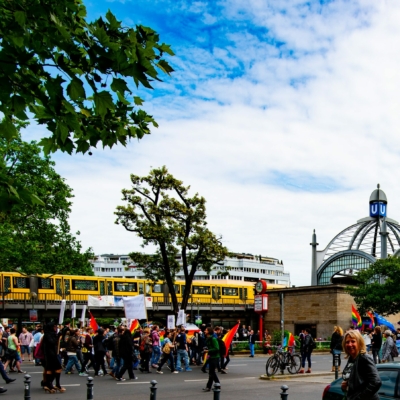
The importance of well-being for entrepreneurs in a startup ecosystem
In the last decade, the well-being and health of individuals have gained prominence across the world. In this vein, global leaders have already started initiatives that place people’s well-being and mental health as a societal goal and a national success measure. These latest policy developments show a significant shift in attitudes towards economic and social progress and point out the need to change how we measure and perceive entrepreneurial ecosystems. Indeed, measuring entrepreneurship activity in economic outcomes is vital for job creation, economic growth, and resilience. However, non-economic benefits of individuals such as subjective well-being, inclusion, access to ecosystem resources, and equal opportunities also need to be considered by ecosystem stakeholders in their policies.
Unlike most traditional occupations, entrepreneurs enjoy more freedom and higher levels of satisfaction with their jobs, enabling them to fulfill their talents and engage in purposeful activities. Despite entrepreneurs exhibiting higher levels of well-being compared to employees, 72% of them are directly or indirectly affected by mental health issues. Venture creation is recognized as being a stressful, unpredictable, and ambiguous journey. Not only do entrepreneurs have to fulfil a large number of tasks requiring extended working hours, they have to do so in an environment characterized by high risk and uncertainty. Trying to start a business is even more challenging when the well-being of individuals is low. People living in factor-driven economies have lower levels of well-being compared to those living in innovation-driven economies. Being confronted with the distress associated with living in substandard housing conditions or not having access to essential health services are all factors that contribute to individual well-being.

Germany as a startup location
Well-being indicators play a crucial role when entrepreneurs need to decide where to locate their business and Germany performs well in many measures of well-being relative to top European startup locations such as the UK, Sweden, France, and the Netherlands. Germany ranks first in wealth, job security, and education and second after the Netherlands in subjective well-being and work-life balance. These aspects attract many internationals with diverse ethnic and cultural backgrounds that call Germany their home and start a business. A knowledgeable and skilled group of individuals is perhaps the critical element of a healthy entrepreneurial ecosystem and Germany has one of the best-educated labor forces thanks to a strong education system and effective policies to boost STEM skills. On top of these advantages, an essential aspect of well-being is the amount of time a person spends at work and overall life satisfaction. In Germany, people are generally more satisfied with their lives than the European average, and only 4% of employees work very long hours (compared to the European average of 11%).
But why Berlin and not other cities in Germany?
Berlin’s entrepreneurial ecosystem stands out from the many ecosystems within and outside Germany due to its openness, quality of business infrastructure, and attractive living environment. A healthy ecosystem depends on collaboration between entrepreneurs, universities, investors, and the government. Berlin as a creative environment hosts numerous network and founder events such as Berliner Gründungsnetzwerk, Entrepreneurs Club Berlin or Science & Startups that offer entrepreneurial education and training as well as engaging all stakeholders in the startup scene. The scientific landscape further strengthens the ecosystem’s health by engaging more than 100 higher education institutions and research facilities. They act as a gateway to innovative research, infrastructure, scientific mentors, access to infrastructure, and grants. Regarding its business infrastructure, Berlin has the densest network of more than 200 co-working spaces and business incubators and eight technology parks in Germany.
When it comes to its attractive living environment, Berlin is a vibrant city with diverse residential boroughs, ranging from quarters with old buildings to extensive single-family home districts to refurbished modern buildings. While increasing rents and space shortages are becoming noticeable in Berlin, it still has significantly lower rent prices among Germany’s large cities.





